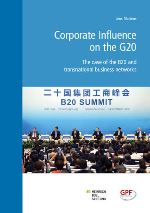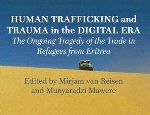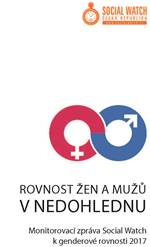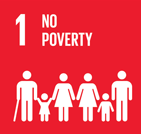Social Watch news
Published on Thu, 2017-03-23 11:01
Over the past eight years, the G20 has emerged as one of the most prominent political fora for international cooperation. For transnational corporations and their national and international associations and lobby groups, the G20 process provides important opportunities to engage with the world’s most powerful governments, shape their discourse, and influence their decisions. For this purpose, business actors have created a broad network of alliances and fora around the G20, with the Business20 (B20) as the most visible symbol of corporate engagement. A new working paper published by Global Policy Forum and Heinrich-Böll-Stiftung maps out the key business players and associations from the different sectors and branches involved in the work of the G20, and analyzes their core messages and policy recommendations. |
Published on Fri, 2017-03-17 15:15
The economic empowerment of women is the priority theme for the 2017 UN Commission on the Status of Women with special attention to the empowerment of indigenous women. The struggle to empower women and to combat gender inequality goes hand in hand with the struggle for women’s human rights. The increasing application of human rights instruments from local to global continues to be the hallmark of organizing that crosses sectors, policy tracks and borders. The work of human rights advocates and defenders has required establishing new rules and systems as well as removing discrimination and bias in the application of existing ones. This is as relevant across territorial borders as within them and the gap between transnational economic activities and global economic governance can magnify inequalities or nullify measures to overcome them. As economies are operating across or without borders so too must the human rights instruments and frameworks - the norms and standards that apply equally to the powerful and powerless. |
Published on Thu, 2017-03-16 21:01
The book entitled "Human Trafficking and Trauma in the Digital Era: The Ongoing Tragedy of Trade in Refugees from Eritrea" sheds new light on the thriving business of human trafficking for ransom with severe torture practices, also named Sinai trafficking, and traces back its origins. It presents the findings that show how money is made with the smuggling of Eritrean refugees and how the booming business runs with inhuman practices such as violence, hostage situations and torture. This comes with a detrimental effect to the Eritrean community, which suffers collective trauma due to bearing witness to abuse of family members and fellow nationals through mobile phones and digital social networks. |
Published on Wed, 2017-03-08 00:00
Czech women are two times more likely to fall into poverty than men. This gap is particularly pronounced among the elderly and single-parent families, notes the Czech branch of the Social Watch network in its report published on the occasion of the International Women's Day. In the Czech Republic, women are responsible for 87 per cent of single-parent families, with an estimated total number of 180,000. Nearly 20% of these families with one parent are at risk of poverty. Mothers without a spouse often have low incomes and are twice as likely to be unemployed than the national average. The Social Watch Coalition in Czech Republic launched the report on gender equality concerns itself with two of the most serious issues of today – firstly, the feminization of poverty (the status of single mothers and female pensioners) and secondly, the violence suffered by women and migrants. |
|
Source: . Published on Tue, 2017-03-07 17:43
Ženám v Česku hrozí chudoba mnohem víc než mužům. Nejvíc ohrožené jsou samoživitelky s dětmi a seniorky, které zůstaly samy. Velký problém dál představuje i násilí vůči ženám. Výsledky výroční zprávy o rovnosti pohlaví zveřejnila v úterý česká koalice mezinárodní sítě Social Watch při příležitosti Mezinárodního dne žen. |
|
Source: . Published on Tue, 2017-03-07 17:43
Tato slova zaznívají v jedné výrazné scéně jednoho proslulého normalizačního propagandistického seriálu (lze přitom jen doporučit jisté kreativní využití této scény...). |
Published on Tue, 2017-03-07 17:43
Czech women are two times more likely to fall into poverty than men. This gap is particularly pronounced among the elderly and single-parent families, notes the Czech branch of the Social Watch network in its report published on the occasion of the International Women's Day. In the Czech Republic, women are responsible for 87 per cent of single-parent families, with an estimated total number of 180,000. Nearly 20% of these families with one parent are at risk of poverty. Mothers without a spouse often have low incomes and are twice as likely to be unemployed than the national average. |
Published on Thu, 2017-03-02 17:52
In the framework of its critical engagement in the 2030 Agenda, ANND launched an effort to document national programs for the implementation of the Sustainable Development Goals (SDGs) and socio-economic reform initiatives in the Arab region. This effort takes the form of national assessment reports and seeks to check if such implementation is made within a comprehensive rights-based development strategy, adopted with an inclusive, participatory and transparent approach. The assessment reports link between monitoring and evaluation by Civil Society Organizations (CSOs) of the implementation of Agenda 2030 and other similar human rights monitoring mechanisms. They shed light on the necessity to adopt an inclusive social dialogue for policy making at the national level. With the limited resources available, the reports shall be made on a few countries (namely Jordan, Egypt and Morocco) and shall focus on 3 SDGs only: |
Published on Fri, 2017-02-24 08:27
The current model of UN development assistance—operating country by country, and issue by issue, with priorities heavily driven by individual donors and their interests—is no longer fit for its intended purpose. The ambitious vision of the 2030 Agenda for Sustainable Development challenges the UN development system to fully respond to the inextricable links across countries and among social, economic and environmental concerns. This is not just an issue of greater efficiency and effectiveness within existing arrangements. It is a question of how the UN development system can meet the high demands of new commitments aimed at transforming the course of development so that it is equitable, sustainable and aligned with human rights, and remains within planetary boundaries. |
Published on Thu, 2017-02-23 08:20
The sheer size and scope of corporate power, when compared to nation states, can be difficult to comprehend. Research shows that 63 per cent of the top 175 global economic entities are transnational corporations, not countries. Up until now, the ability to sue corporations for human rights violations and environmental damage has depended on national governments’ capacities, political will, and resources to pay the exorbitant amounts of money to sustain such international lawsuits, to hold corporations accountable and demand compensation. |
SUSCRIBE TO OUR NEWSLETTER












